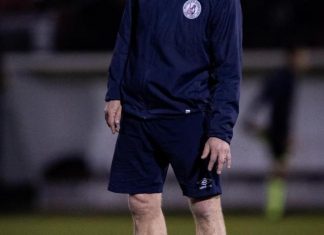Homelessness is still a big issue in Brimbank, claims an RMIT University researcher, who has unearthed more than 100 unregistered boarding houses across the north-west in recent years.
With a recent RMIT report showing one in 10 Australians have been forced to sleep rough at some stage, Associate Professor Chris Chamberlain said a 2011 study revealed there were 175 unregistered boarding houses, “mostly” across Melbourne’s north-west.
“I’ve visited a number of agencies and worked with homeless people in Brimbank,” Associate Professor Chamberlain said.
“There’s a whole series of issues about where you send them. One option is to get people into boarding houses.
“Quite a few boarding houses in Brimbank were not formally registered with the council, particularly in St Albans,” he said.
“Lots of agencies were telling me they were using boarding houses, but they weren’t formally registered. It’s a legal requirement to be registered so that things like building standards can be checked, and they conform to various safety regulations, especially around fire.”
He said homeless people in Brimbank were “a very mixed group”.
“Many who have been evicted are simply poor. You get younger people, you get people escaping domestic violence and some older people who are renting, who can no longer afford the rent.”
City development director Stuart Menzies said the council had received 14 complaints about allegedly unregistered rooming houses in the past six months, and he urged that such places be reported to council.
“Rooming house operators must apply for registration with council and ensure that the property complies with legislated standards,” Mr Menzies said.
“Brimbank council investigates all properties reported or suspected of operating as an unregistered rooming house.
“Council plays an important role to ensure rooming houses in the municipality are up to standard regarding fire safety, disabled access and public health requirements.”







